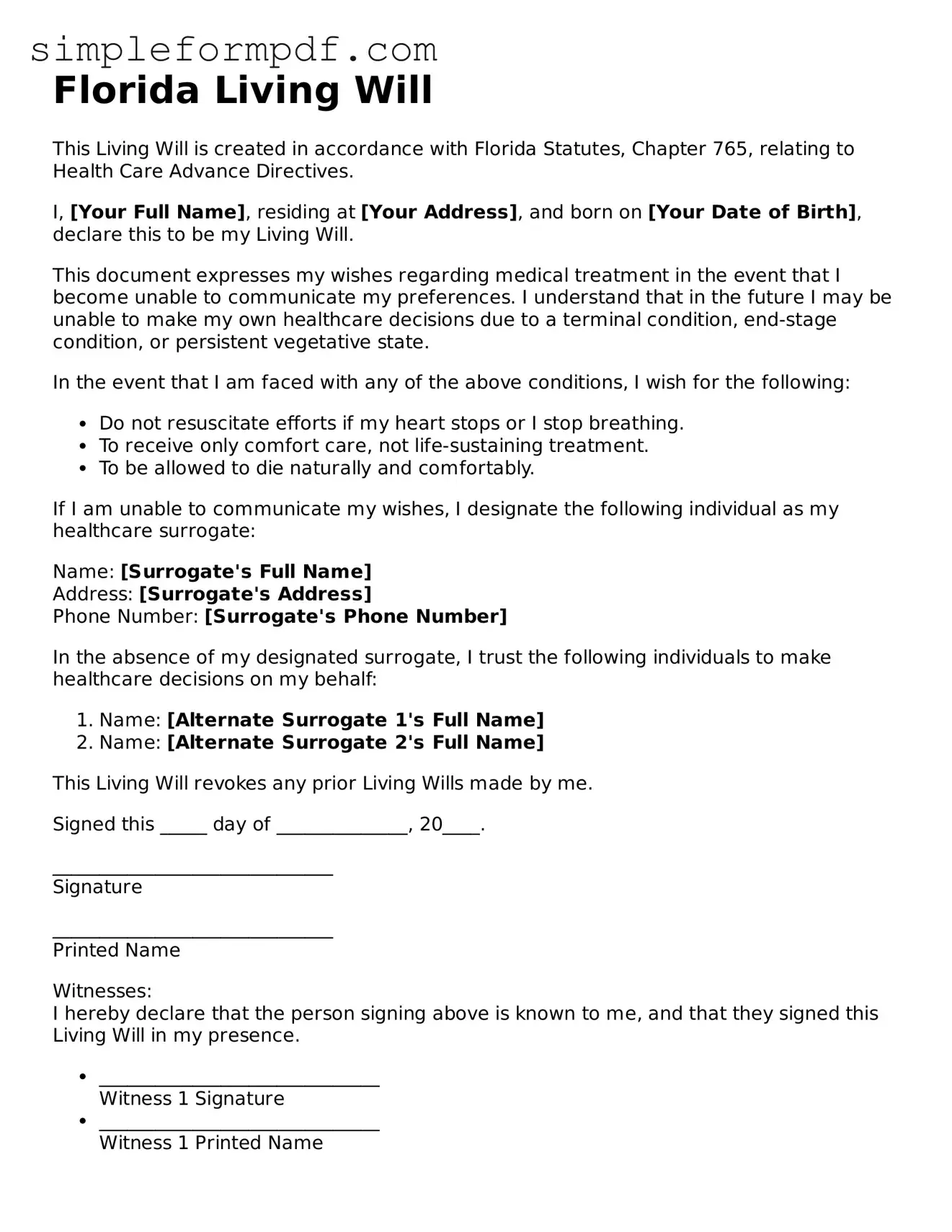Free Living Will Form for the State of Florida
A Florida Living Will is a legal document that allows individuals to express their wishes regarding medical treatment in the event they become unable to communicate those preferences. This important form ensures that your healthcare decisions are respected, reflecting your values and desires. To take control of your future healthcare, consider filling out the Living Will form by clicking the button below.
Launch Editor

Free Living Will Form for the State of Florida
Launch Editor
Need instant form completion?
Finish Living Will online in just a few minutes.
Launch Editor
or
Download PDF
